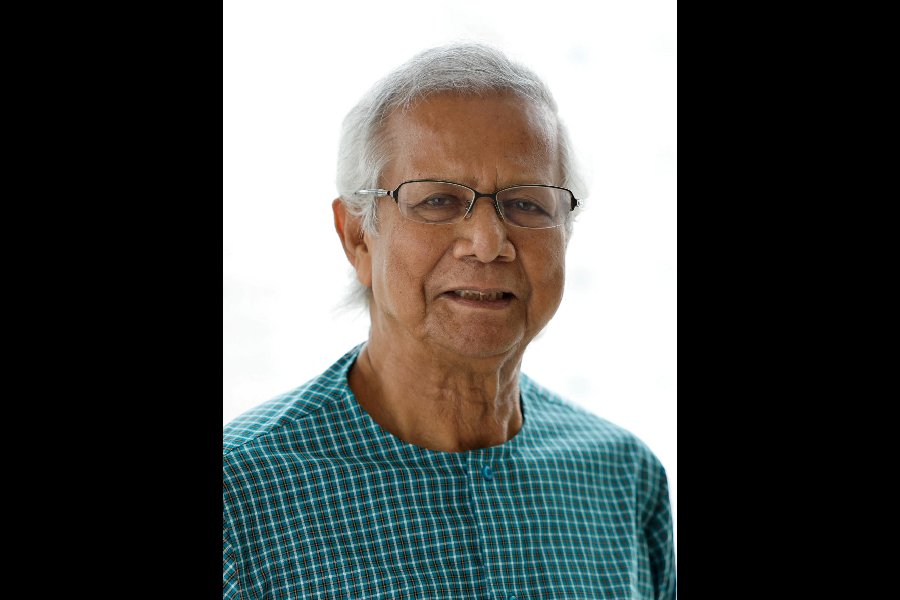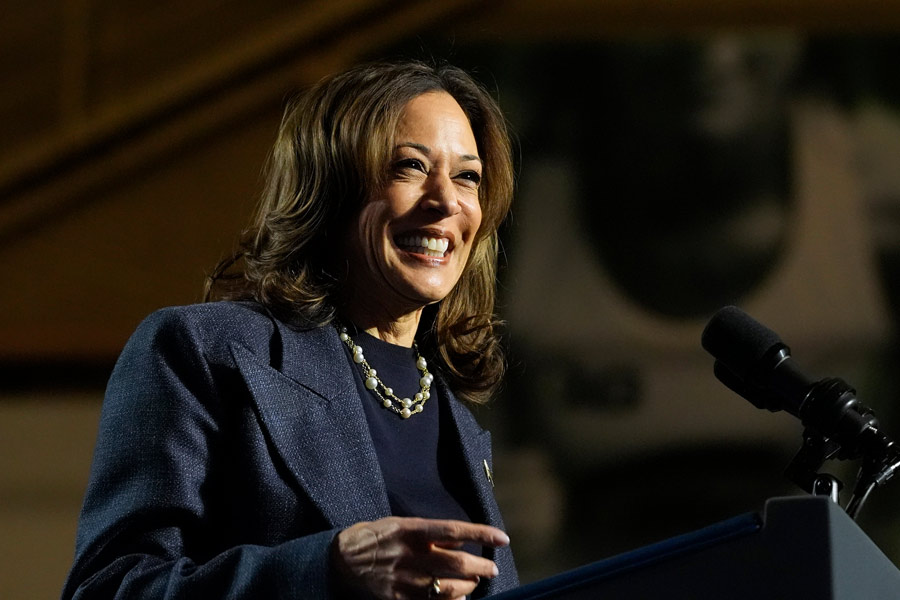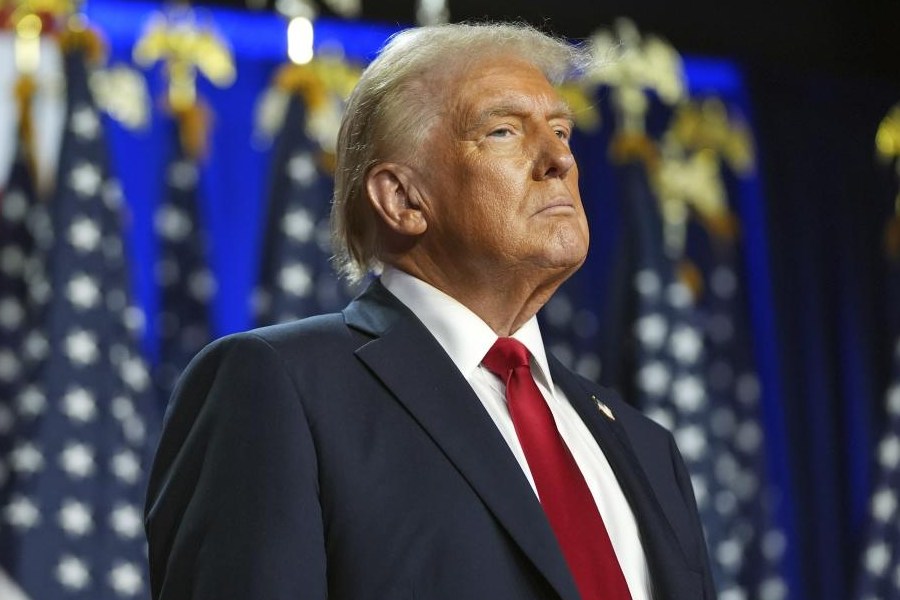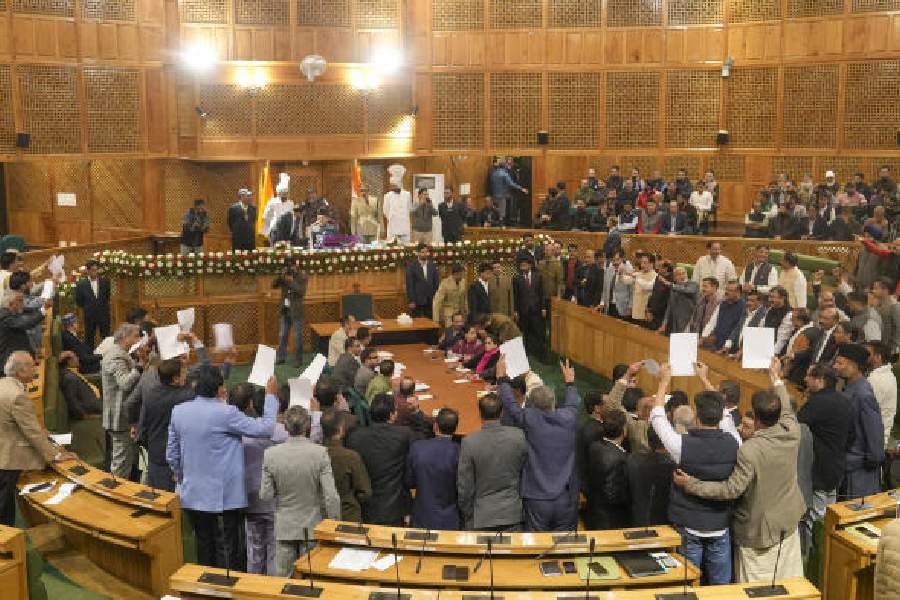Muhammad Yunus, chief adviser to the interim government in Bangladesh, on Wednesday congratulated Donald Trump on his election as the new US President amid murmurs of discomfort in Dhaka’s power corridors over the election outcome.
“Excellency, aligning with our commitment to a peaceful and inclusive society, the government and the peace-loving people of Bangladesh look forward to partner and collaborate in your efforts in addressing the global challenges in the pursuit of peace, harmony, stability, and prosperity for all,” Yunus wrote to Trump in a letter.
The content of the letter from the Nobel laureate indicated an attempt by him to cosy up to the new US President, who had created a storm last week by expressing his concerns over the state of affairs in Bangladesh in his tweet on the occasion of Diwali.
“I strongly condemn the barbaric violence against Hindus, Christians, and other minorities who are getting attacked and looted by mobs in Bangladesh, which remains in a total state of chaos,” Trump had twitted in the run up to Tuesday’s elections.
The comment was an embarrassment for the Yunus administration, perceived to be close to the US establishment because of his personal equation with Bill and Hillary Clinton. A large section of the Bangladeshi media came up with a rebuttal — which sources said was scripted by the media wing of the interim government — decrying Trump’s “profound lack of understanding” of global politics.
“Now Trump will be the US President... The interim government will need him and the chief adviser made the first move to build bridges,” said a Dhaka-based observer.
Fulfilling the mission, however, is likely to be difficult because of a history of a strained Yunus-Trump equation, which became a topic of discussion on social media in Bangladesh and beyond.
“Trump’s win has hit us so hard that this morning I could hardly speak.... I lost all strength... We must not allow this lapse into depression, we will overcome these dark clouds,” Yunus had said at a French B-school, after Trump defeated Hillary in the 2016 US elections.
The bitterness between the duo apparently began in 2016 when the Nobel laureate allegedly made a huge donation to the Clinton Foundation ahead of Hillary’s bid for US presidency.
Trump also made his displeasure with Yunus, who was then the head of the micro finance institution Grameen Bank, apparent when a delegation from Bangladesh visited him in Washington. “Where is the micro-finance guy from Dhaka... I heard he donated to see me lose,” an Awami League source, who was part of the delegation, quoted Trump recalling the interaction that took place eight years ago.
Several senior leaders of the Awami League, which ruled Bangladesh for over 15 years till it was thrown out by a wave of protests on August 5, told this correspondent that Trump’s victory was good news for “secular, liberal and progressive politics” in the country. “There was a perception that the Joe Biden administration had a role in the regime change and Yunus regime had the backing from Washington... Trump’s tweet largely changed that,” said a former minister of the Sheikh Hasina government.
“In the run up to the polls, there was a general feeling among us that be it Kamala Harris or Trump, the US stand on Bangladesh would change after Biden, on whom the Clintons had much larger influence, as the interim regime has institutionalised Islamic fundamentalism in our country. In case of Trump, we think the possibility of a US rethink will be much more,” added the minister, now in exile.
Though the interim regime under Yunus have swatted away the narrative on rise of Islamic fundamentalism, reports on attacks on the minorities, loot of their properties and abuse of women have become a regular affair since August 5. The Hazari area of the port city of Chittagong witnessed an unprecedented targeting of Hindus on Tuesday night when the army and the police, along with an angry mob, attacked business establishments owned by Hindus. There were allegations on social media that the army was seen destroying CCTV cameras in some gold jewellery shops.
Such attacks on the minorities and dissenters, which has become a norm in Bangladesh, are unlikely to continue with the change of guard in Washington, said multiple sources in Bangladesh. “The use of the institutions like the army, the police and the administration to settle scores will not be easy,” said a former editor of a news channel.
While a section in Bangladesh, exasperated with the new regime, are hopeful that Trump’s equation with Indian Prime Minister Narendra Modi may create a favourable situation for Sheikh Hasina, who is now in India, to return to the country, an Indian observer ruled out that possibility.
“With Trump at the helm, the US may take Indian views on Bangladesh more seriously, but that doesn’t mean another change of guard in Dhaka very soon,” said the observer.
Amid speculations on the future of politics in Bangladesh, there is a buzz that the new regime may hold early elections, by either denying AL a level playing field or banning its participation, to hand over the power to the Bangladesh Nationalist Party, the biggest opposition for the last 15 years.
“Such plans will be difficult to implement as Yunus has clearly lost the extra leverage he had with the Biden administration,” said the observer.
Both Sheikh Hasina, Awami chairperson, and exiled BNP leader Tareq Rahman also congratulated Trump on his victory.










